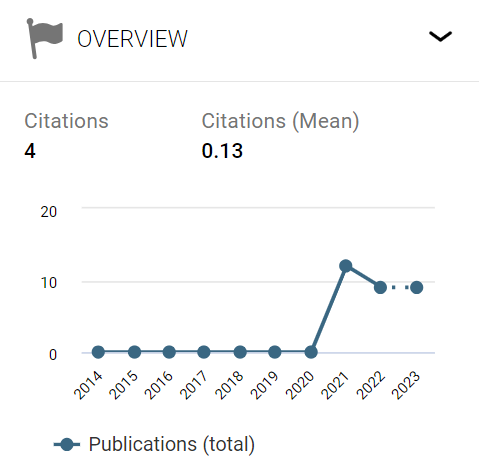Andil Kepemimpinan Ester bagi Mordekhai dan Relevansinya bagi Kepemimpinan Perempuan Masa Kini
DOI:
https://doi.org/10.52849/apokalupsis.v14i2.93Keywords:
esther; leadership; mordecai; womenAbstract
This article is motivated by the author's concern regarding the exploitation felt by women in various fields of life and not least in the field of leadership. Women are often only considered as tools in achieving certain goals. Therefore, this article aims to respond to the exploitation of women's leadership which was inspired by the leadership of Esther who contributed significantly in saving her nation through her wise attitude towards Mordecai. This article was studied using qualitative research methods combined with a hermeneutic approach to the book of Esther with data sourced from books, journals, articles and commentaries related to the topic. The results show that women's leadership is still often used as a tool of exploitation by other parties without giving women full freedom to act creatively in making decisions and implementing those decisions. However, Esther's role in saving her nation is proof that women have equal rights and roles in the world of leadership, and women can even be extraordinary tools in declaring big things. Esther proved that she could not only save her people, but also showed wisdom towards Mordecai. Reflecting on Esther's experience, women should be braver in making decisions and not depend on other parties to carry out their leadership.
References
Tafsiran Alkitab Masa Kini Kejadian-Ester. (2005). Jakarta: Yayasan Komunikasi Bina Kasih.
Tafsiran Alkitab Wyclife. (2014). Malang: Gandum Mas.
Baldwin, J. G. (1984). Tyndale Old Testament Commentaries. Leicester: InterVarsity Press Academic.
Baxter, J. S. (1983). Kejadian sampai dengan Ester. Jakarta: BPK Gunung Mulia.
Desi, K. (2021). Teologi Feminis Sebagai Teologi Pembebasan. Loko Kada: Jurnal Teologi Kontekstual dan Oikumenis 1 (2): 25.
Hartono, T. (2022). Membaca Ulang Kisah Ester dalam Bingkai Kepemimpinan Perempuan Kristen di Era Postmodern. Xairete: Jurnal Teologi dan Pendidikan Kristiani 2 (1): 33.
Natar, A. N. (2019). Perempuan dalam Kepemimpinan Agama: Pengalaman Kristen. Musawa: Jurnal Studi Gender dan Islam 18 (2): 133.
Pranoto, M. M. (2018). Selayang Pandang Tentang Teologi Feminis dan Metode Berteologinya. Jurnal Abdiel 2 (1): 3.
Rirumase, M. (2009). Perempuan, Kekerasan dan Perdamaian: Sebuah Refleksi Teologi Feminis. Yakoma: PGI.
Samarenna, D. (2020). Studi Tentang Kepemimpinan dalam Perjanjian Lama. Jurnal Teologi Gracia Deo, 117.
Schafer, R. (2014). Menggugat Kodrat Mengangkat Harkat. Jakarta: BPK Gunung Mulia.
Setiawan, A. A. (2018). Metodologi Penelitian Kualitatif. Sukabumi: CV Jejak.
Stedman, R. (2003). Petualangan Menjelajahi Perjanjian Lama. Jakarta: PT Duta Harapan Dunia.
Simamora, N. N. (2011). Kisah Ester. Jurnal Te Deum 1 (1): 194.
Suparman. (2019). Getar-Getar Jiwa Si Trinil dari Mayong-Jepara. Jakarta: Uwais Inspirasi Indonesia.
Surajiyo, d. (2020). Pengertian Sumber Daya Manusia, Pengertian dan Teori. Yogyakarta: DeePublish.
Tonglo, D. (2023). Kepemimpinan Perempuan dalam Perspektif Alkitab. Malang: CV. Literasi Nusantara Abadi.
Walton, A. E. (2013). Survei Perjanjian Lama. Malang: Gandum Mas.
Downloads
Published
How to Cite
Issue
Section
License

This work is licensed under a Creative Commons Attribution-ShareAlike 4.0 International License.









